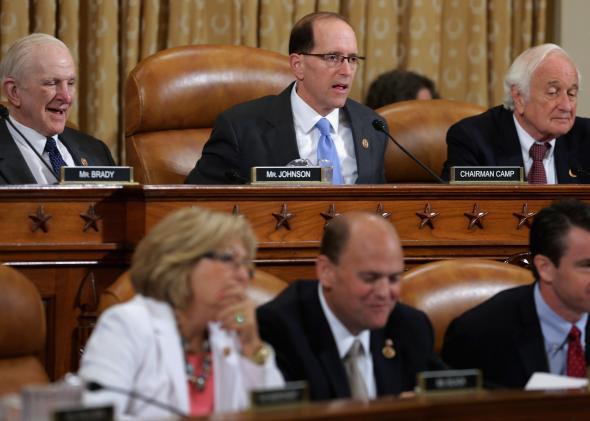As I wrote yesterday, there are some good, praiseworthy elements in the tax reform plan released by Rep. Dave Camp (R-Mich.) this week. Democrats obviously aren’t going to vote for the plan because it doesn’t raise any revenue, but Jonathan Chait thinks it’s worthy of constructive engagement anyway since obviously no Republican was going to put a tax hike plan on the table.
But it’s worth saying that Camp’s plan doesn’t just fail to raise revenue. It probably reduces government revenue. Because the Committee for a Responsible Federal Budget grades Republicans on a curve for the sake of maintaining its posture of nonpartisanship, their overall write-up of Camp’s plan is full of praise, but the analysis wisely notes that the plan “relies on several one-time revenue sources and timing shifts to pay for permanent rate cuts, meaning that it could actually increase deficits in future decades.”
One example is that Camp wants to switch our corporate income tax system to what’s called a “territorial” system, a change that has some merits but would reduce long-term corporate income tax revenue. But part of the switch would be a one-off transitional period in which earnings that U.S. firms have currently stashed abroad to avoid taxes on would be brought home and lightly taxed. Within a 10-year budget window, you can raise substantial revenue with this kind of thing. But in the second and third decade those fees go away and the permanent costs remain in place.
A genuinely revenue-neutral tax reform is worth contemplating for the potential growth benefits. But a tax reform that’s only revenue-neutral in this gimmicky sense while locking in a lower baseline is no good.
